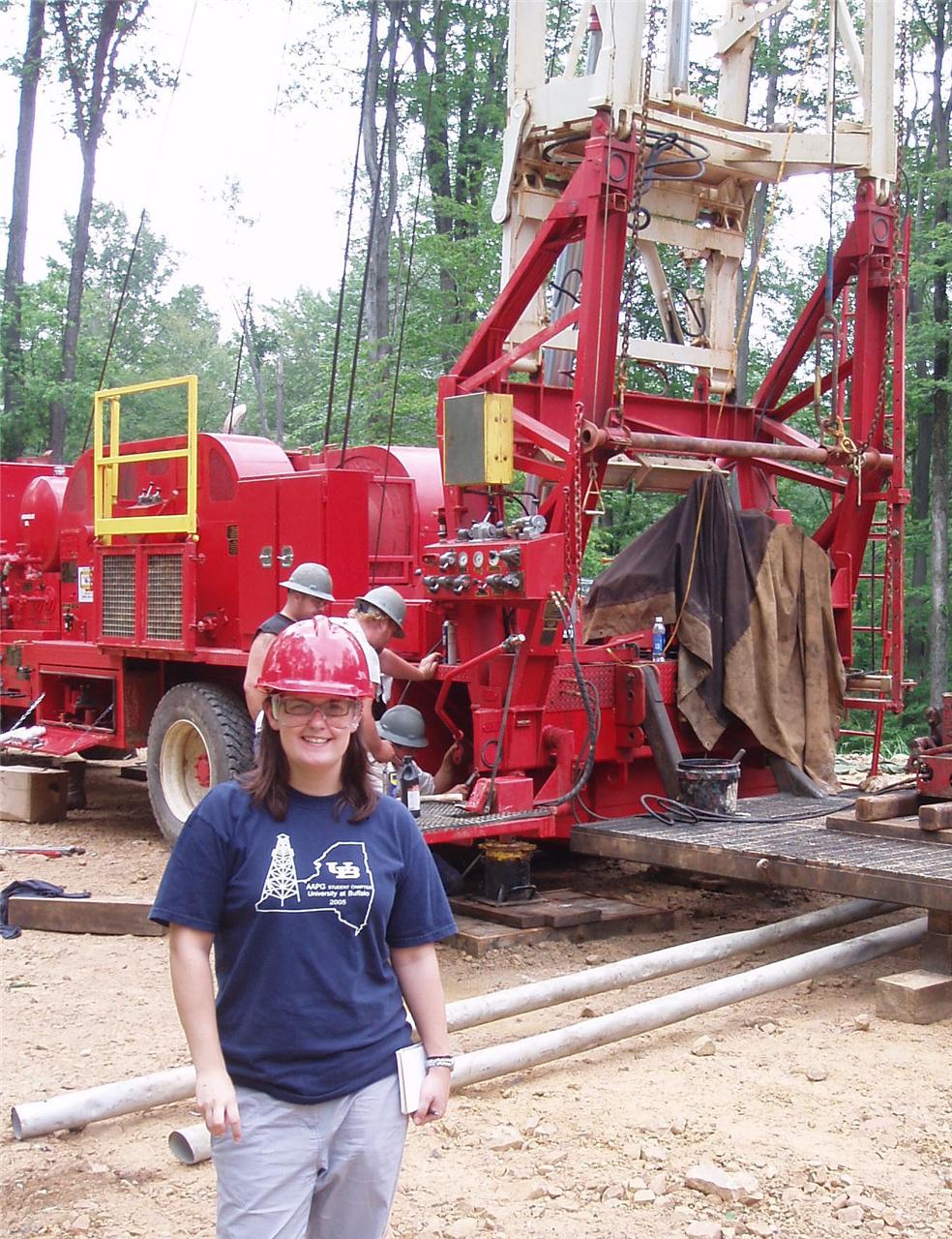The energy industry is known for the rapid pace of change, price fluctuations, and innovative ways of structuring new businesses, launching new technology, and incorporating alternative, sustainable methods. AAPG teams up with organizations to provide new opportunities for its members to equip them to evolve in the world.
The energy industry is known for the rapid pace of change, price fluctuations, and innovative ways of structuring new businesses, launching new technology, and incorporating alternative, sustainable methods. AAPG teams up with organizations to provide new opportunities for its members to equip them to evolve in the world.
Welcome to an interview with Kelly Shaffer, graduate of Texas A&M Texarkana’s Energy Leadership program and member of AAPG.
What is your name and your background?
My name is Kelly Shaffer, I received a bachelor's degree in geology and art history and a master’s degree in geology from the State University of New York at Buffalo and I have worked in the oil and gas industry as a Geologist for over a decade. I have done exploration and operations within North America, working for both small privately owned companies and mid-sized publicly traded companies.
What was your area of emphasis for your master's degree?
Energy Leadership
How did you find the Texas A&M Texarkana Energy MBA program?
I dabbled with the idea going back to school and getting either an MBA or a JD. I had researched programs within Oklahoma and personally didn’t feel that the return on investment was there. I received an email from the AAPG promoting Texas A&M’s Energy MBA program. I contacted the University to get more information, signed up and started classes that week.
What were some of the advantages?
- Cost - This is a really affordable MBA program! Texas A&M Texarkana is in a unique location and because of that they give bordering states in-state tuition prices.
- Relationship with AAPG
- Energy focused program
- Flexibility - The program is flexible in that you can decide how many credit hours you take each semester, you can work from anywhere and around your schedule.
Please describe some of the projects and coursework. How did they relate to your real-life work?
I was able to work on many projects that not only directly relate to real-life work, they give you a better understanding of decisions companies make especially in downturns. Not all classes were directly related to the energy industry which enabled me to work with people in different disciplines and industries. I feel that the overall program gave a great overview of business in general. Some of the topics covered were finance, strategic planning, policy and strategy, leadership in management, organizational behavior, international business, accounting and economics.
I think one of the most beneficial parts of the course work was that we utilized real companies’ public data in order to build strategic plans, financial analyses, and risk management plans. For many of the projects we were able to choose the companies that we analyzed; this made the exercises more relevant and interesting.
Creating financial analyses of different companies was a great way to get an understanding of how to read and analyze a company's financial statements and stock information. This is beneficial not only for understanding where your own company stands financially, but also to be able to calculate the strength of other companies in any industry. Having the capability to evaluate any public company’s financial strength is a great tool to have for your own personal investments as well. This along with understanding interior and exterior forces that can affect a company's progress can really help give a big picture story of any company.
Please describe some of the work you did in Dr. Davis's course in Strategic Management.

First Well Visit 2006 Pennsylvania
For this class the main project was working as a team to build a strategic plan. Through this we were able to do a full analysis of a company of our choosing by identifying external trends that impact operations, then strengths and weaknesses within the company. Once all of this information was put together we built a short term and long term plan for the company. This included building a projected income statement and balance sheet, based on previous trends combined with our projected outcome which was based on our strategic plan. This was a great project to help build the skills necessary to analyze a company's direction and be able to think critically about building a plan to strengthen the future of the company.
This class also had two essays that were focused on different factors affecting the energy industry. One was a discussion of the evolution of the energy industry and how companies can and are adapting to survive. The other was more of a “choose your own adventure” and I chose to work on the “great crew change” addressing the age gap in the industry due largely to the bust in the 1980s.
How do you plan to use the degree?
I plan to use this degree to set myself apart from my peers and further my career in the industry. I have acquired skills that expand my ability to analyze and think critically about a company's future and therefore be an integral part in developing that.
I think this program is a great way to be proactive about building your career and also help bridge the looming age gap affecting our industry. With the industry getting younger it is a great way to fast track your capabilities like: leadership skills, managerial knowhow and perspective about business relationships and networking.